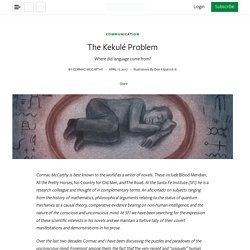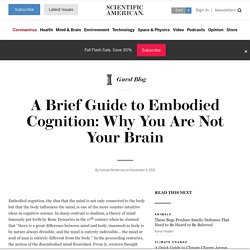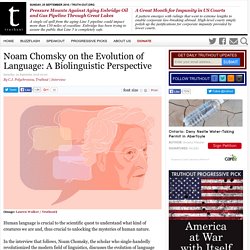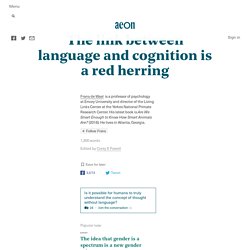

The Littlest Language – Snipette. What language do you think in?

Sometimes, thoughts come into your head. Just like that. It’s only later that you put them into words. Other times, when you’re consciously thinking about something or trying to figure it out, the thinking happens in a certain language. Even when I’m not quite aware of it, I often look back and realise I’ve been thinking in words. What’s more, the words and languages can be different depending on the context. Thoughts are not limited to spoken languages. Programming languages express things in a very different way from languages like Tamil or English. In fact, programming languages have even given rise to a whole new art form: code poetry. Languages are not just about expressing things. Imagination is such an ancient ability it might precede language. Imagination is intrinsic to our inner lives.

You could even say that it makes up a ‘second universe’ inside our heads. Cormac McCarthy on the Origin of Language. Cormac McCarthy is best known to the world as a writer of novels.

These include Blood Meridian, All the Pretty Horses, No Country for Old Men, and The Road. At the Santa Fe Institute (SFI) he is a research colleague and thought of in complementary terms. An aficionado on subjects ranging from the history of mathematics, philosophical arguments relating to the status of quantum mechanics as a causal theory, comparative evidence bearing on non-human intelligence, and the nature of the conscious and unconscious mind. A Brief Guide to Embodied Cognition: Why You Are Not Your Brain - Scientific American Blog Network. Embodied cognition, the idea that the mind is not only connected to the body but that the body influences the mind, is one of the more counter-intuitive ideas in cognitive science.

In sharp contrast is dualism, a theory of mind famously put forth by Rene Descartes in the 17th century when he claimed that “there is a great difference between mind and body, inasmuch as body is by nature always divisible, and the mind is entirely indivisible... the mind or soul of man is entirely different from the body.” In the proceeding centuries, the notion of the disembodied mind flourished. From it, western thought developed two basic ideas: reason is disembodied because the mind is disembodied and reason is transcendent and universal. However, as George Lakoff and Rafeal Núñez explain: Cognitive science calls this entire philosophical worldview into serious question on empirical grounds... Is the study of language a science? Science is a messy business, but just like everything with loose ends and ragged edges, we tend to understand it by resorting to ideal types.

Noam Chomsky on the Evolution of Language: A Biolinguistic Perspective. (Image: Lauren Walker / Truthout) Human language is crucial to the scientific quest to understand what kind of creatures we are and, thus crucial to unlocking the mysteries of human nature.

In the interview that follows, Noam Chomsky, the scholar who single-handedly revolutionized the modern field of linguistics, discusses the evolution of language and lays out the biolinguist perspective -- the idea that a human being's language represents a state of some component of the mind. This is an idea that continues to baffle many non-experts, many of whom have sought to challenge Chomsky's theory of language without really understanding it. Journalist and ''radical chic" reactionary writer Tom Wolfe was the latest to do so in his laughable new book, The Kingdom of Speech, which seeks to take down Charles Darwin and Noam Chomsky through sarcastic and ignorant remarks, making vitriolic attacks on their personalities and expressing a deep hatred for the Left.
C. Noam Chomsky: This is quite true. When computers learn language they inevitably adopt human's implicit biases — Quartz. Come to Silicon Valley, California.

Build something important. The link between language and cognition is a red herring. Scientists working on animal cognition often dwell on their desire to talk to the animals.

Oddly enough, this particular desire must have passed me by, because I have never felt it. I am not waiting to hear what my animals have to say about themselves, taking the rather Wittgensteinian position that their message might not be all that enlightening. Even with respect to my fellow humans, I am dubious that language tells us what is going on in their heads. I am surrounded by colleagues who study members of our species by presenting them with questionnaires.
The evidence is in: there is no language instinct. Imagine you’re a traveller in a strange land.

A local approaches you and starts jabbering away in an unfamiliar language. He seems earnest, and is pointing off somewhere. But you can’t decipher the words, no matter how hard you try. That’s pretty much the position of a young child when she first encounters language. Chomsky Was Right, NYU Researchers Find: We Do Have a “Grammar” in Our Head. A team of neuroscientists has found new support for MIT linguist Noam Chomsky’s decades-old theory that we possess an “internal grammar” that allows us to comprehend even nonsensical phrases.

“One of the foundational elements of Chomsky’s work is that we have a grammar in our head, which underlies our processing of language,” explains David Poeppel, the study’s senior researcher and a professor in New York University’s Department of Psychology. “Our neurophysiological findings support this theory: we make sense of strings of words because our brains combine words into constituents in a hierarchical manner—a process that reflects an ‘internal grammar’ mechanism.” Lewis Thomas on our Social Nature and "Getting the Air Right" “What it needs is for the air to be made right. If you want a bee to make honey, you do not issue protocols on solar navigation or carbohydrate chemistry, you put him together with other bees (and you’d better do this quickly, for solitary bees do not stay alive) and you do what you can to arrange the general environment around the hive.
Yuval Noah Harari on Why Humans Dominate the Earth: Myth-Making. How 'Concept Creep' Made Americans So Sensitive to Harm. A mother leaves her son in the car while popping into a store at a strip mall. She is charged with contributing to the delinquency of a minor. A high school senior complains to her Facebook friends about a teacher and is suspended for “cyberbullying.” Students at Wellesley start a petition calling for the removal of a statue of a man in his underwear, claiming that the art piece caused them emotional trauma. So many residents of Santa Monica, California, claim to need emotional support animals that the local farmer’s market warns against service dog fraud. How did American culture arrive at these moments?
What is blue and how do we see color? Analogy as the Core of Cognition. What a difference a word can make. People spend a good deal of time talking to one another, and in general we do it pretty well. We might feel excited, angry, embarrassed, or — if we’re lucky — loved, in the course of our daily conversations. So is there any benefit to thinking about a science of talk? Can we really gain anything from scientific analysis of something we “just do”?
I believe we can, and I’ve spent the last 20 years studying real talk from real people talking to each other in real time. And while the linguist Noam Chomsky once described conversation as a “disorderly phenomenon,” I can tell you that it’s no such thing. Take this ordinary telephone call between two friends, Nancy and Hyla, transcribed according to the standard conversation analysis transcription system, which includes intonation and the actual sounds being made rather than just the correct spelling of a word (lines under a word represent emphasis and different movements in pitch, the equals sign means that the turns are very rapid): 1. The Science of Sarcasm? Yeah, Right. 'I know, right?': The anatomy of a wonderfully nonsensical phrase. Hidden Cues That Sway You. The Secret Life of Pronouns: James Pennebaker at TEDxAustin.
Exercises. To Predict Dating Success, The Secret's In The Pronouns : Shots - Health Blog. Hide captionPeople who are interested in and paying close attention to each other begin to speak more alike, a psychologist says. iStockphoto.com People who are interested in and paying close attention to each other begin to speak more alike, a psychologist says. On a recent Friday night, 30 men and 30 women gathered at a hotel restaurant in Washington, D.C. Thinking alike changes how we speak : NewsCenter. As social creatures, we tend to mimic each other’s posture, laughter, and other behaviors, including how we speak.
Now a new study shows that people with similar views tend to more closely mirror, or align, each other’s speech patterns. In addition, people who are better at compromising align more closely. “Few people are aware that they alter their word pronunciation, speech rate, and even the structure of their sentences during conversation,” explained Florian Jaeger, associate professor of brain and cognitive sciences at the University of Rochester and coauthor of the study recently published in Language Variation and Change. The links between bloggers' personalities and their use of words. The Weird Thing About Facebook: Status Updates Are The Most Memorable Writing You Do. If you’re a Facebook skeptic and believe that most status updates are over-sharey and show-offy (babies, weddings, the aftermath of too much beer), you are not wrong.
But whether inane or informative, there’s something interesting about Facebook status updates: According to a new study, we are one and a half times more likely to remember them than any other form of written language. Your words matter. Words Can Change Your Brain.mov. 5 examples of how the languages we speak can affect the way we think.
Keith Chen (TED Talk: Could your language affect your ability to save money?) The Hidden Connection Between Morality and Language. Language: What foreign words are difficult to translate into English. 11 Untranslatable Words From Other Cultures. » Lera Boroditsky, “How Language Shapes Thought” Keith Chen: language that forecasts weather — and behavior.
RSA Animate - Language as a Window into Human Nature. The language of lying - Noah Zandan. Words, words, words. Steven Pinker: Linguistics as a Window to Understanding the Brain. Daniel Everett: Endangered Languages. Imagine A Flying Pig: How Words Take Shape In The Brain : Shots - Health News. The Psychology of Language: Which Words Matter the Most When We Talk. Metaphors We Think With: The Role of Metaphor in Reasoning. The Mind is a Metaphor: As It Were. Poetry for Everyday Life. Metaphors We Live By, Lakoff and Johnson. Lost in Translation: Exploring the Connection Between Language and Thought. Is A Cat A Cat? (Derrida + Double Dragon) – 8-Bit Philosophy. Shakespeare’s Genius Is Nonsense - Issue 18: Genius. A Brief Guide to Embodied Cognition: Why You Are Not Your Brain. The myth of language universals — Max Planck Institute for Psycholinguistics.
Alan Watts - To Speak the Truth. Idea Framing, Metaphors, and Your Brain - George Lakoff. The Chicken, the Egg and The Hermeneutic Circle.